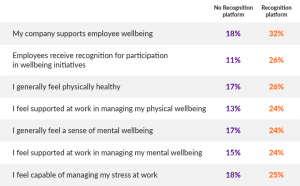Blogging can be an immersive and all-consuming past-time; and one that requires considerable research and focus if you are to be successful. It can become even more time-consuming if you have decided to take up blogging as a profession, as this also requires you to develop a strategy for developing your blog and driving revenues.
Whether you own your own blog or spend time crafting content for brands, however, the nature of blogging is demanding and it can easily lead to burn-out and a significant work-life imbalance. You must adopt a proactive approach if you are to avoid this, as you seek out practical steps to maintain your motivation and introduce balance into your everyday life.
3 Steps that help you to Avoid Blogger Burnout
Before you begin to take decisive action, however, you will need to adjust your mind-set. You should approach blogging in the same way that entrepreneurs’ build their business ventures, as successful blogs also require owners to develop and scale an initial concept while also creating sustainable revenue streams.
This will enable you to become a more focused and strategic blogger, before you take the following steps and reduce the Omni-present risk of burnout:
Turn off your computer and establish fixed working hours
While bloggers often have the freedom to set their own working schedule, they are often victims of their own ambitions. This means that they end up working elongated and unsociable hours, with part-time bloggers likely to operate during evenings and weekends.
Regardless of your circumstances, however, it is crucial that you set fixed working hours and create a viable schedule within the time-frames that you intend to blog. This essentially creates a period of time where you can commit wholeheartedly to creating content and strategically managing your blog, after which time you must commit to switching off your computer and enjoying a period of recreation.
For full-time bloggers this is as simple as replicating a working scheduled during the day, allowing for lunch and regular breaks. While it is harder for part-time bloggers, the key is to estimate a viable amount of time that you can commit to the venture and utilize this as productively as possible.
It is also important to make time for regular physical exercise, as this is something that is known to boost productivity and reduce stress. It can also promote greater clarity of thought, which will help you to create a detailed and manageable schedule.
Seek out daily bursts of inspiration and open your mind
There is an old adage which suggests that curiosity killed the cat, but according to recent research it also stimulates the brain’s reward system, aids learning and creates greater mental focus.
Above all else, curiosity implores us to learn more about the world around us and break away from the mundane routine of creating content within a specific niche. This helps us to keep the mind refreshed, as we seek out daily snippets of inspiration that pertain to our interests, passions development as an individual. Resources such as popular TED talks are excellent sources of inspiration, as our preferred blogs that speak about unusual subjects.
News resources may also be of interest, regardless of the precise source or channel that you access data through. The main thing is to focus on areas and topics that are outside of your expertise, as this engages your curiosity and creates a more alert mental state. By scheduling regular (but short) breaks where you seek out such muses, you can improve your focus and avoid the threat of burnout.
Open your Blog to Guest Posts and Skilled Authors
As a new blogger, you are likely to be extremely protective of your content and the site as a whole. This sense of independence will only be exacerbated by Google’s drive to eradicate spam from the Internet, with Matt Cutts famously declaring guesting posting as a redundant practice back in 2014.
What bloggers fail to recognize is that this comment must be taken in context, however, as it refers to black hat techniques and the creation of high volume copy that drives link building through inadequate content. This has caused the nature of guest posting to evolve over time, as bloggers and marketers use external publications to engage audiences, drive brand awareness and establish themselves as thought leaders within a specific field.
In this respect, guest blogging can be an extremely beneficial process for numerous parties so long as it is carried out in accordance with existing Google algorithms. From your perspective as a writer and blog owner, you can encourage interested parties to submit high quality content to your site, as this offers your readers a fresh perspective on recurring themes and enables you to ease your own writing burden (while also developing a new revenue stream).
This also offers you access to high quality content for free, so it is worth pursuing so long as you follow several, simple steps. It is crucial that you set clearly defined guidelines for guest bloggers to follow, for example, while also reinforcing the tone and theme of the site. You must also edit all content and avoid publishing any spammy or overly promotional links, as this can lead to your blog being sanctioned.
It is also sensible to encourage guest authors to interact with reader comments and share the content socially, as this traffic and engagement through your blog in an organic manner.
Digital & Social Articles on Business 2 Community(44)






